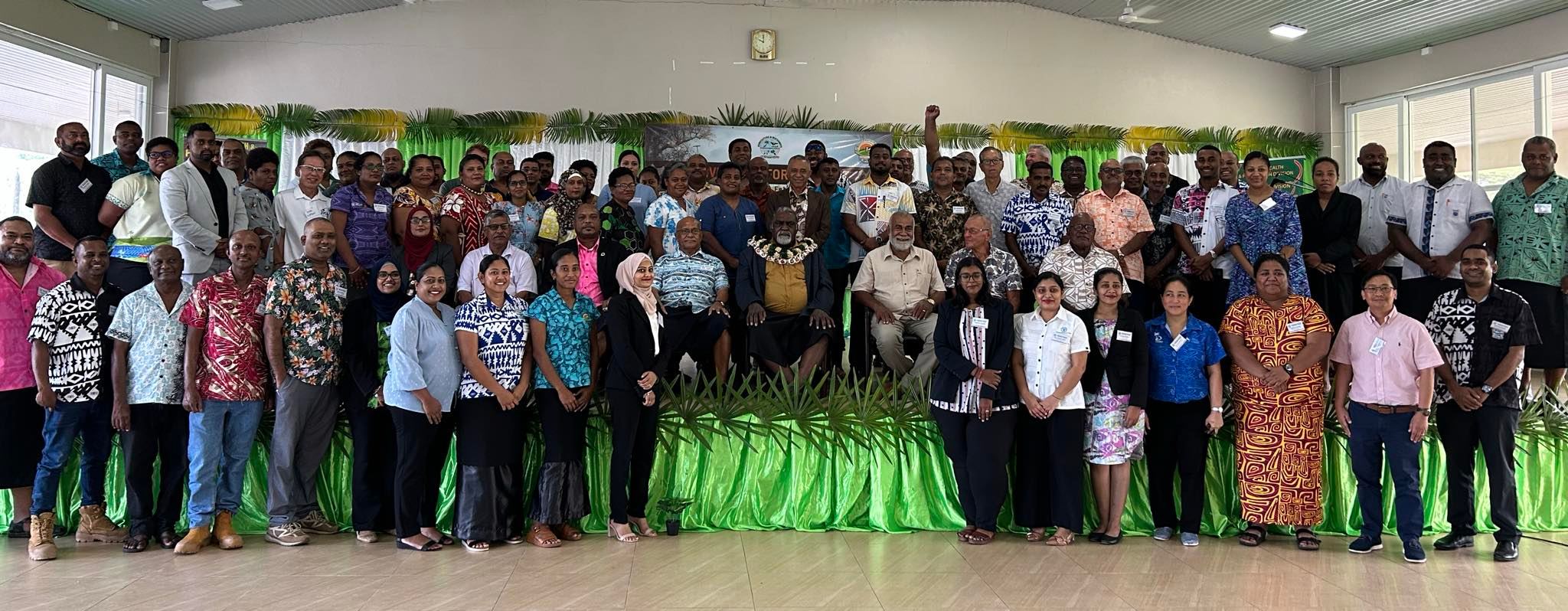STAKEHOLDERS MEET TO MAP WAY FORWARD FOR LIVESTOCK SECTOR
February 27, 2025

Livestock farmers, industry experts, researchers, policymakers, and development partners are currently meeting at the Royal Events Centre in Sawani this morning, to try and map the way forward for the livestock sector.
In today's opening of the Livestock Forum, Assistant Minister for Agriculture and Waterways, Honourable Tomasi Tunabuna said that the forum is a significant milestone in the ministry’s efforts to transform and strengthen the livestock sector in our communities and our country as a whole.
“Apart from generating employment and income, the livestock sector plays a critical role in our food system, contributing to a significant share of our protein requirement and contributing to our country's self-sufficiency in meat, dairy and poultry products,” said Hon. Tunabuna.
“However, the sector faces numerous challenges, including limited access to markets, high production costs, disease outbreaks, and climate change. These challenges hinder the sector's growth and competitiveness, making it essential for us to come together to strategize and find solutions.”
The last forum, held in 2016, focused on critical issues such as improved governance, competitive value chains, sustainability, resilience, and opportunities for the new generation.
“While significant progress has been made since then, the evolving landscape of agriculture and livestock demands that we review and refine our strategies to meet current and future challenges,” added Hon. Tunabuna.
“Climate change, market fluctuations, and technological advancements are just a few of the factors that require us to adapt and modernize. So this forum is a platform for us to share knowledge, experiences, and best practices in the livestock sector.”
Hon. Tunabuna added that government and all stakeholders aim to create a sector that is resilient, sustainable, and equitable, providing benefits to all.
"The livestock sector contributed 7.8% to the GDP with a growth rate of 5.6%. By improving this sector, we can reduce our reliance on imports, increase rural incomes, meet our food security needs, and support national development goals,” added Hon. Tunabuna.
This forum aims to review the 2016 strategy and develop a clear, actionable roadmap with specific short-term and long-term objectives.
Hon. Tunabuna reiterated that
the government of the day is fully committed to supporting the livestock sector
through targeted investments, research, and innovations.
“We recognize that a thriving livestock industry is essential for a prosperous and sustainable future. This forum is an opportunity to collaborate and develop a comprehensive 5 to 10-year strategic plan that aligns with national policies and priorities.”
The expected outcomes include a well-defined vision and mission for the livestock sector, detailed commodity industry plans, and a collaborative framework for ongoing stakeholder engagement and implementation.
These outcomes will serve as a blueprint for the sector’s growth and development, ensuring that we are well-prepared to face future challenges and capitalize on emerging opportunities.
The forum, which ends tomorrow, will engage participants in discussions, debates, and presentations on key thematic areas such as livestock production and productivity, animal health and disease management, market access and trade, and climate change mitigation and adaptation, which will shape the future of Fiji’s livestock industry.
ENDS
